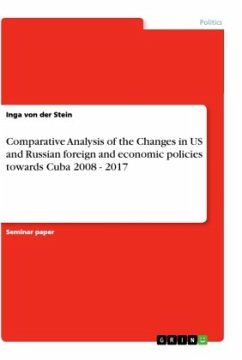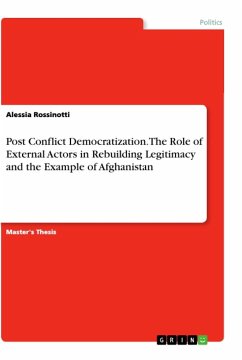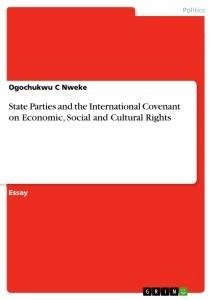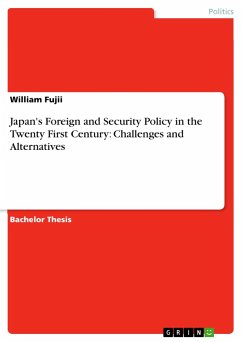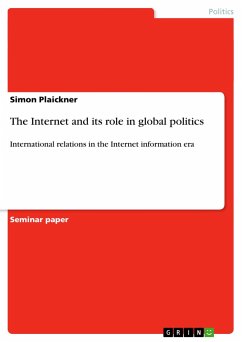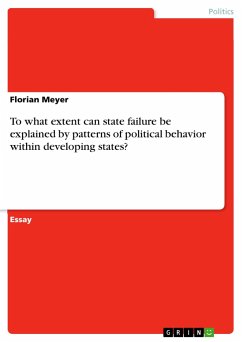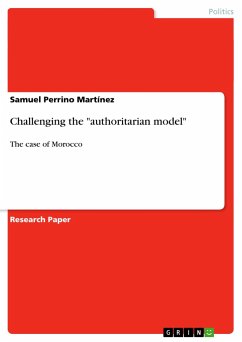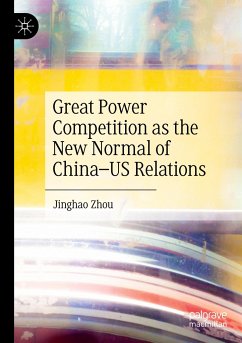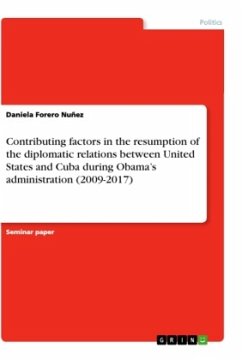
Contributing factors in the resumption of the diplomatic relations between United States and Cuba during Obama's administration (2009-2017)

PAYBACK Punkte
0 °P sammeln!
Seminar paper from the year 2019 in the subject Politics - International Politics - Region: USA, grade: 1,3, University of Regensburg (Lehrstuhl für Internationale Politik), course: Grundkurs: Einführung in die Internationale Politik, language: English, abstract: This paper attempts to analyze which factors played a significant role in the resumption of the diplomatic relations between the United States and Cuba during Obama's administration (2009-2017). The diplomatic relations between the United States and Cuba have been deeply shaped by several political and especially ideological tension...
Seminar paper from the year 2019 in the subject Politics - International Politics - Region: USA, grade: 1,3, University of Regensburg (Lehrstuhl für Internationale Politik), course: Grundkurs: Einführung in die Internationale Politik, language: English, abstract: This paper attempts to analyze which factors played a significant role in the resumption of the diplomatic relations between the United States and Cuba during Obama's administration (2009-2017). The diplomatic relations between the United States and Cuba have been deeply shaped by several political and especially ideological tensions since the 20th century. The US foreign policy to-wards Cuba in the last decades has been characterized by hard-power measures such as sanctions and restrictions. However, a milestone in the history of the continent has been placed by Obama's government, which achieved a historical rapprochement with the Cuban government of Castro. Both US and Cuba don't know the ultimate outcome of the normalization process that started during the Obama's administration; nevertheless, they expect to move even more toward a friendly relationship despite the changes in the Cuba-foreign policy in the current times. In order to determine which aspects were crucial for the attainment of this historical event, the most important arguments from the commercial liberalism and the constructivist theory should be examined. On one side it should be analyzed whether some of the structural changes and economic developments brought with the end of the Fidel Castro era had a significant impact on the shift in the U.S foreign policy toward Cuba and favored the resumption of the diplomatic relations with Cuba. On the other hand, it should be discussed which disparities and similarities in the national identities, and values of both countries, which root in very diverse historical events; may have contributed to a political rapprochement.




